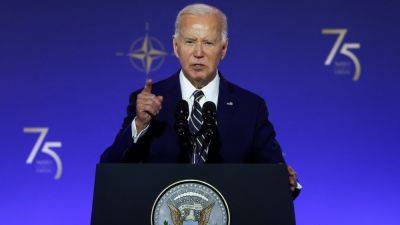'We don't do God' and massive ad spends: How UK election races differ from American ones
The U.K. and U.S. have a lot in common — a shared language, history, democratic ideals and values. But when it comes to politics, us Brits do things very differently from our American friends.
Those differences are plain to see as election campaigns ramp up in the U.K. and U.S., ahead of the British vote on July 4 and the U.S. ballot on Nov. 5.
Of course, our political systems encompass different electoral procedures and processes, but there are other nuances to how the Brits and Americans do political races differently. Here are a handful of them:
By the time a presidential election takes place in the United States, the electorate will have already endured months of seemingly endless electioneering — with the entire election campaign process from candidacies and the campaign trail to the actual presidential election and inauguration taking up to two years.
In the U.K., the time frame between a prime minister calling a general election to the actual vote is just six weeks. American readers might, very reasonably, read that and weep.
With such a tight window in which to win voters' support, the leaders of Britain's political parties dash about the U.K. on campaign "battle buses" as they try to visit as many constituencies as possible to persuade voters to elect the local party candidate as a member of Parliament (MP).
The party that wins the most seats in the House of Commons (the British Parliament) usually forms the new government and its leader becomes prime minister. It sounds simple, and usually is, unless there's a "hung parliament" in which no political party wins a majority of seats. In that case, the largest party can either form a minority government or enter into a coalition government of two or more parties.
Bobby





